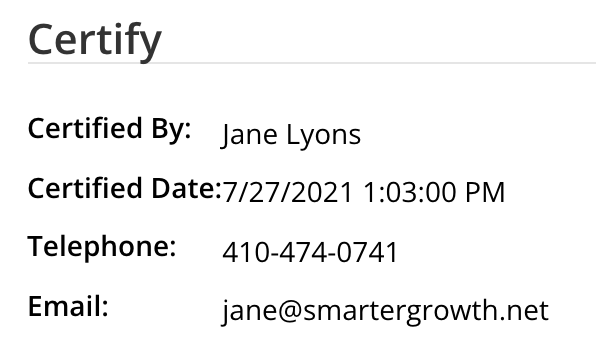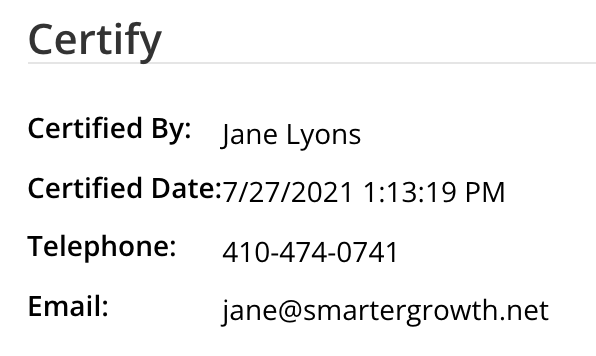Yesterday, Montgomery County Council President Gabe Albornoz sent a letter to the Planning Board demanding more transparency, including that they cease abusing their Consent Agenda for discussions of “major amendments” to plans that require public hearings.
They don’t seem to have received the message.
Instead of offering a mea culpa for their past flagrant violations of the zoning code, they excuse themselves, claiming: “Items are placed on the Consent Agenda for votes when they have not generated controversy.” Except that how do you know there is no controversy without holding a public hearing? And if there is no controversy, why not just put it on the regular agenda and just move along if no one wants to testify instead of signalling and pre-judging the question?
Beyond offering no apology, the Planning Board’s proposed “solution” is to redefine “public hearing” to include Consent Agenda items:
“Public Hearing” or “hearing” means a duly-noticed Summary Hearing (emphasis added) or Full Hearing held before the Planning Board, open to the public, and providing an opportunity for any Person, including the general public or Applicant, to appear and present written or oral evidence, cross examination, or rebuttal, all subject to the provisions in these Rules.
Buried in the Rules of Procedure are also new explanations that items can easily be moved from the Consent to Regular Agenda. However, unless a member of the public goes spelunking in the Rules, they are unlikely to know. Meanwhile, the item remains on the Consent Agenda even though the clear intent of the Code is to require genuine public hearings on major amendments.
Poof! Problem solved!
If Planning Board members were really interested in transparency, they could start by providing a tracked changes version of the document, instead of forcing the public to suss out the changes. These legalistic changes might not even solve their problem as they may still violate common law–not to mention common sense–definitions of a “public hearing.”
It is clear that Planning Board Chair Casey Anderson and possibly the rest of the Board have missed Council President Albornoz’s message. After all, Albornoz could have proposed an amendment to the zoning code instead of pushing for transparency. Nevertheless, the Board has chosen the route of less transparency by redefining “public hearing.”
The Planning Board’s statement begins “We take transparency very seriously.” They then proceed to provide excuses for all of their violations of lobbying registration and open meeting requirements along with this “fix” of their Consent Agenda problem. Their response further undercuts confidence in the ability of the Planning Board to conduct the public’s business in a genuinely fair and transparent manner.
If you wish to testify regarding the proposed changes on February 10 at 9am, you can sign up here. Perhaps the Planning Board might consider holding the hearing on this issue before it goes through its lengthy Consent Agenda.


